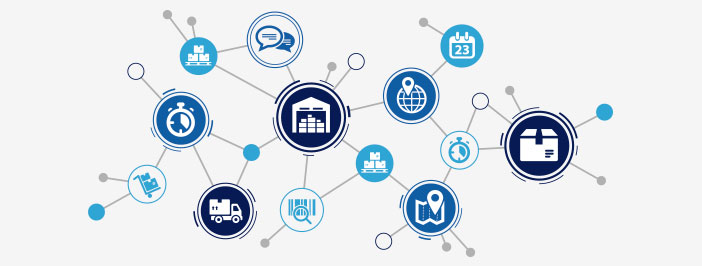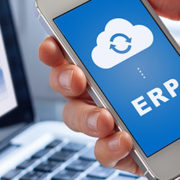How to choose the right ERP solution for your business
All businesses use technology. The most successful businesses have learned that by integrating it into their very core, they can make technology work for them in new and exciting ways. Enterprise Resource Planning, better known as ERP, is designed to manage the most important parts of your business. By using adaptable, cloud-based technology, ERP can accelerate your business, making you more efficient and competitive than ever before.
We have compiled this guide to help you choose the right ERP solution for your unique business needs.
Related reading: 5 signs you need an ERP system
Goals and processes
When you consider ERP systems it is very important to have a clear understanding of your immediate and long-term business goals. In addition to goals, consider the way your business operates. What are your needs? Where are your shortcomings? Have these things clearly in mind before you begin the process of comparing ERP systems. Each ERP system is a little bit different. It is important to choose a system that works with your existing business processes and best practices and will provide assistance where you need it most. Doing so will ensure a cohesive match and as little interruption as possible when it comes to product integration.
Compatibility
As you begin to review ERP systems, you will want to look beyond the technology itself. Consider systems and software you already have and use on a daily basis. Is the ERP compatible with these systems and programs? If not, are there affordable alternatives that you are willing to consider? In the long run, choosing an ERP system that is compatible with existing technology will save you both time and money, as well as the frustration of learning too many new things at once. The simpler the integration process, the happier everyone will be.
Related reading: ERP is about to get friendlier and smarter
Training
As you compare and contrast ERP systems, consider whether training is an important aspect for you and your business. The training that is offered may differ considerably between systems. You should inquire about the following: whether training is included in the cost of implementation or is a separate fee; the scale of training available; training method (i.e. in person, video conference, etc); and whether there are manuals or other supplemental materials available.
Some businesses underestimate the cost and necessity of training and find they do not have the resources needed for training, in order to use their system to its full potential.
Budget
For many small businesses, a budget will be at the top of your list of concerns when it comes to choosing an ERP system. For this reason, it is imperative that you remember to consider all associated costs, including implementation, licensing, training, and on-going support. Talk to potential ERP providers for a detailed list of fees. You certainly do want to choose a system that you are comfortable paying for.
That said, while the price is a factor, it should not be the most important one you’re deciding. Choosing a system that is cheap, but poorly suited for your business can have negative long-term consequences. On the flip-side, if you choose to spend a little more in something that is better suited to your goals and needs, a well-suited ERP system can positively impact both efficiency and profits. This is one product that is worth viewing as an investment.
More reading: What ERP means for your small business












